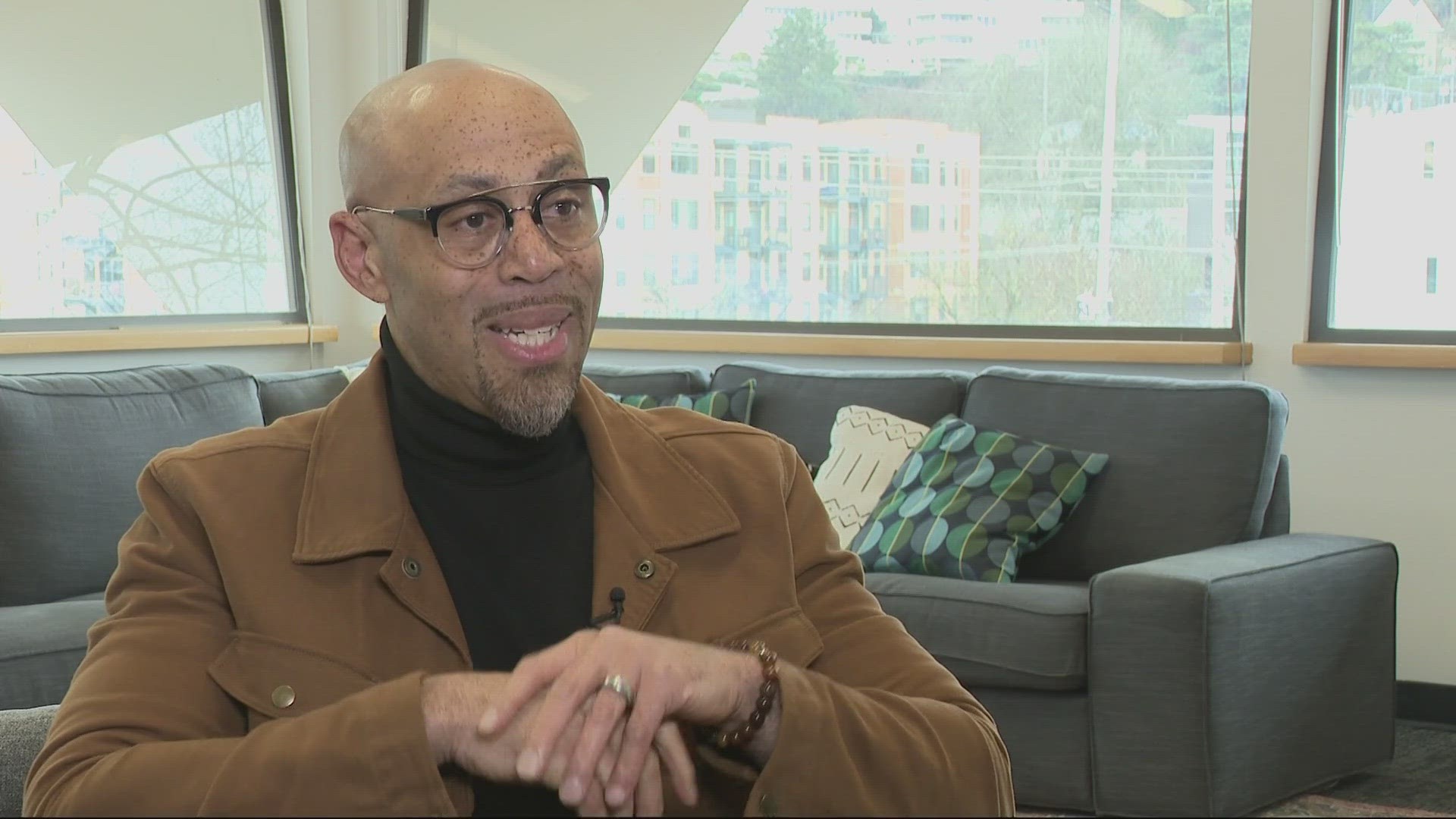PORTLAND, Ore. — A Portland clinician, speaker and community advocate is on a mission to empower people — particularly those in the Black community — to talk about mental health, and in turn, have better health overall.
“I love helping people. I love giving people the opportunity to find that special thing within themselves to make themselves better,” Dr. Keith Dempsey said. “I’m all about advocacy. I’m all about talking about it, but the powers that be — let’s move past the talk and support the talk.”
He works in the Portland community and has taken his message on the road to break stigmas and get people talking about the human experience of mental health.
“It’s not just the talking about it. It’s creating the space for listening,” Dempsey said. “The reason we don’t talk about it — because we can’t trust people with our vulnerabilities, and that’s because of the stigma. That’s because of the idea that if you’re going to counseling, there is something wrong with you. We’ve got to, as a listener, be able to change that in our minds.”
Creating trust and breaking down stigmas around mental health in the Black community come with historical and systemic scars.
“There’s a history in the health systems; there’s a history in the mental health systems that African American folks have not been treated well, and when you haven’t been treated well and you haven’t gotten good outcomes, you are in a place that’s not safe — you stay away from those places,” Dempsey said.
Scholars point to historic misconceptions and racist practices that have taught generations of African American people to ignore mental illness and distrust those in the mental health field.
Mental health issues are often compounded by the psychological stress of systemic racism. As a result, African American adults are 20% more likely to report serious psychological distress than white adults, according to USC Suzanne Dworak-Peck School of Social Work.
“Here we are, we have a community that has not been engaging in mental health services for reasons that make sense. Those are just not safe places,” Dr. Dempsey said.
Black people are far less likely to seek care. Statistics show that about 25% of African Americans seek mental health treatment, compared to 40% of white Americans, according to McLean Hospital.
“Not that it’s only time to talk about it, but it’s time to be able to listen and take care of folks in their vulnerable spaces,” Dr. Dempsey said. “Because when we can do that, then folks will know 'it’s okay not to be okay, and I have safety in the room.'”
Maybe that’s in a church, a community center, or in your own family or friendships: Dempsey said it’s essential to create safe spaces for people to talk and that really does start with listening without judgement.
“For those of us who are not mental health counselors, guess what? You all don’t have to do anything but listen,” Dempsey said.
When it comes to getting mental health care, it can be hard for people of color to find therapists and counselors who look like them.
Dempsey said you’ve got to do your homework, and there are some important things to ask to make sure that person is the right place for help.
“... Ask your counselor, 'Have you ever counseled a person of color? What is your approach?'” Dempsey said. “If they buckle, if they get defensive — not the place to be. However, if they say, 'Great question. I’m glad you put that forth' and opens it up and starts talking about anti-racist systems and ... about the racism that has been in the system, and is okay talking about how hurtful and harmful it has been — boy, that’s a place you can think about being.”

